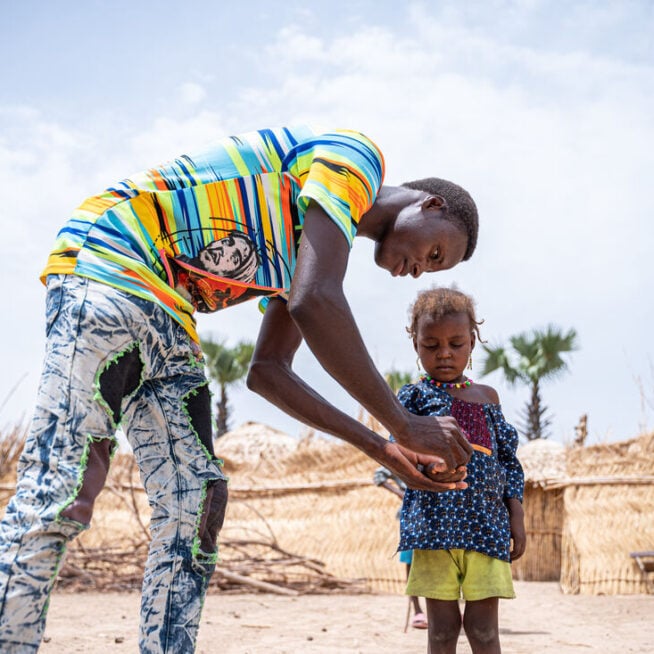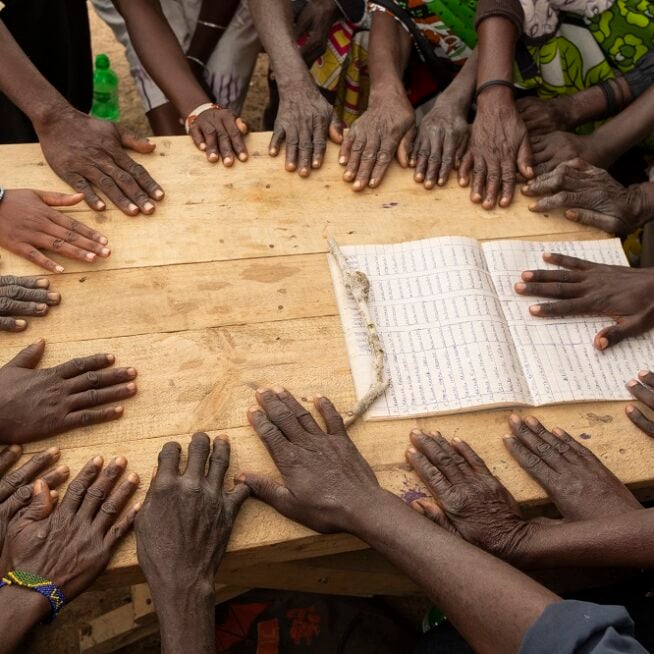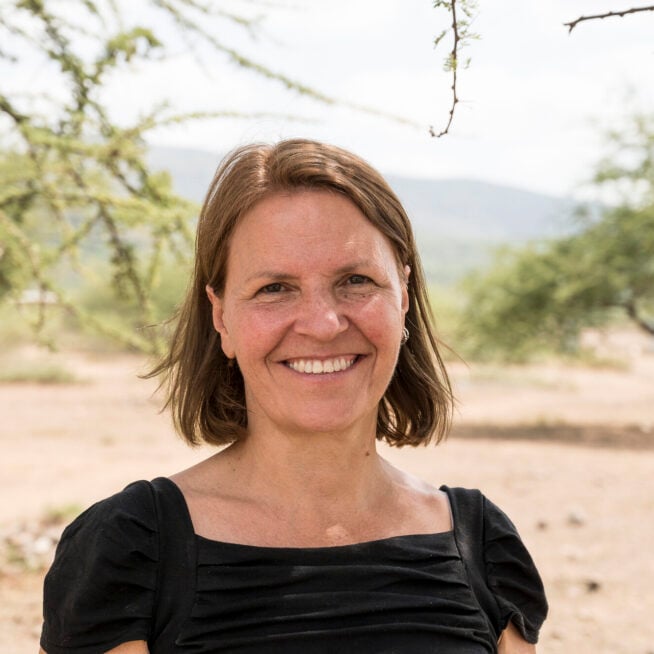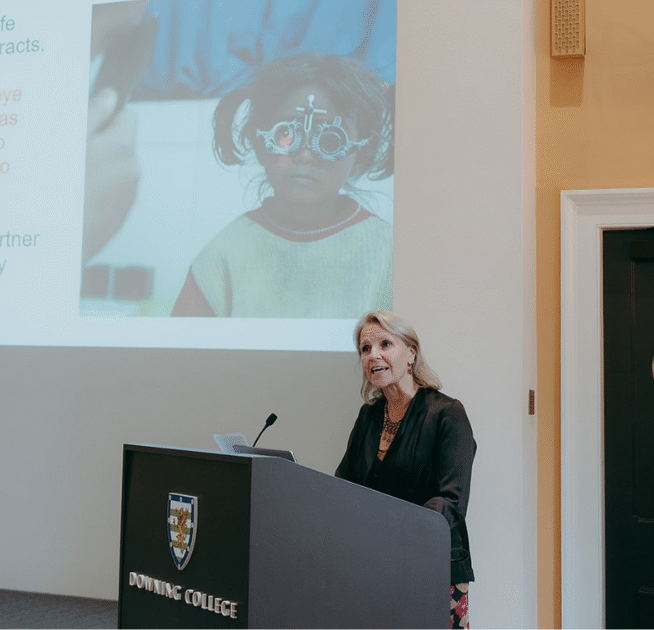Want to transform lives with us? Stay in touch and hear about our news, activities and appeals by email!
Faith’s story: The importance of quality maternal healthcare to #EndFistula
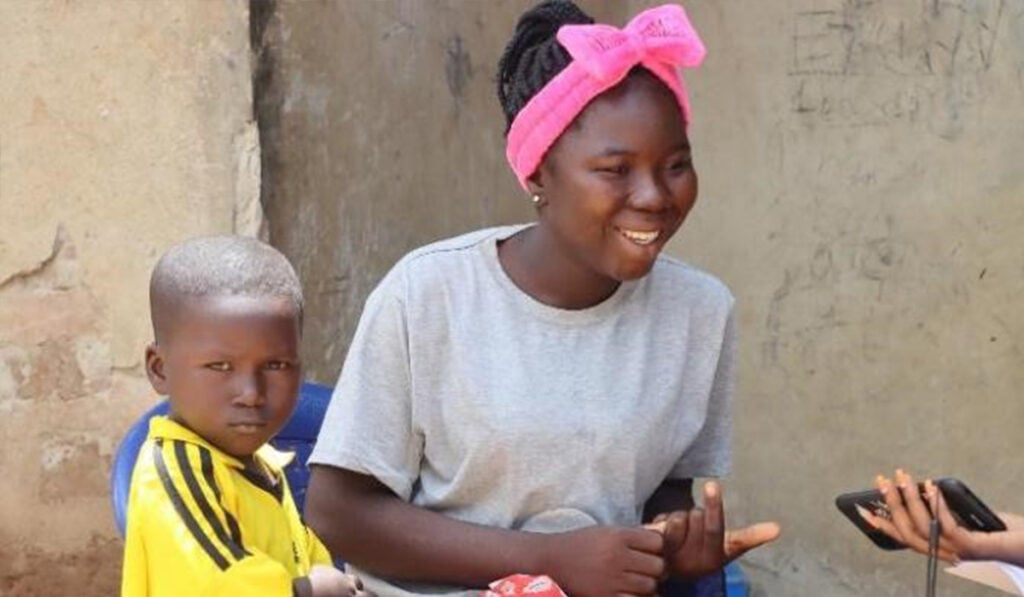
23 May is International Day to End Obstetric Fistula. We are working with our partners to #EndFistula by improving maternal healthcare for women in Nigeria. Every woman and girl has the right to quality healthcare – especially during pregnancy and childbirth.
Fistula is a debilitating condition causing incontinence and a risk of life-threatening infection. A fistula (a hole in the birth canal) is usually the result of prolonged labour and lack of maternal healthcare. It is the most devastating of all pregnancy-related disabilities and Nigeria accounts for 40% of fistula cases worldwide*. But it can be treated, and appropriate care can help prevent fistula from developing in the first place. Together with our partners, Survive Fistula Healthcare Foundation (SFHF) and Bingham University Teaching Hospital, we are working to improve access to quality maternal health services in Nigeria and put an end to this destructive, preventable condition.
*UNFPA, the United Nations sexual and reproductive health agency, in Nigeria
Faith’s Story
Faith gave birth to her son at home after a prolonged labour, because her family could not afford hospital bills. Three months after the delivery, she started leaking urine.
“I was still breastfeeding my baby. I started urinating without control. Before then, I used to go outside with my baby and socialise, but everything stopped because I was smelling. I lost all my friends who were there supporting me morally during the pregnancy time,” Faith tells us.
“I don’t sit outside because if I stand up, I’m always wet. My parents were doing everything for me. They took my son to the hospital for immunisation or treatment because I couldn’t go out.”
Things only changed for Faith when she came across an outreach activity in her community.
“I heard a jingle in my local dialect, Gbayi, for women or girls that are leaking urine and faeces. I attended the activity and heard them talk about my condition.
“After, I went to the Ma’angwan (community leader) and discussed my condition with him. He collected my number and I got a call from SFHF inviting me for the screening and then surgery.”
Thankfully, Faith’s surgery was successful and she has been healed and dry since.
“After the repairs, SFHF enrolled me in a baking, catering and event management center, and bought all necessary equipment and materials needed to start-up my business. It is still my heart desire to return to school, but my parents cannot afford it.”
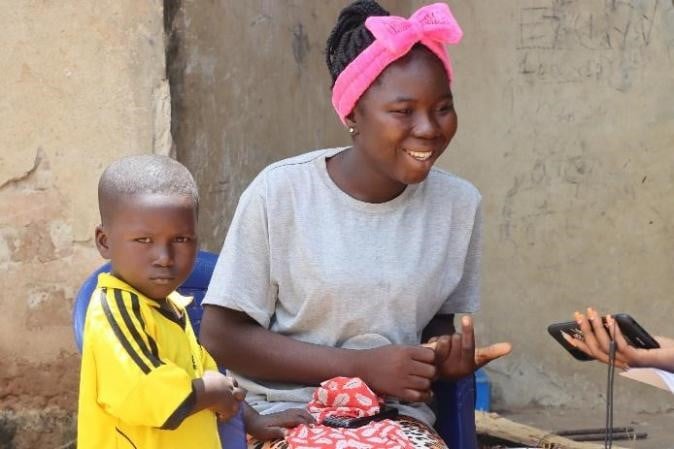
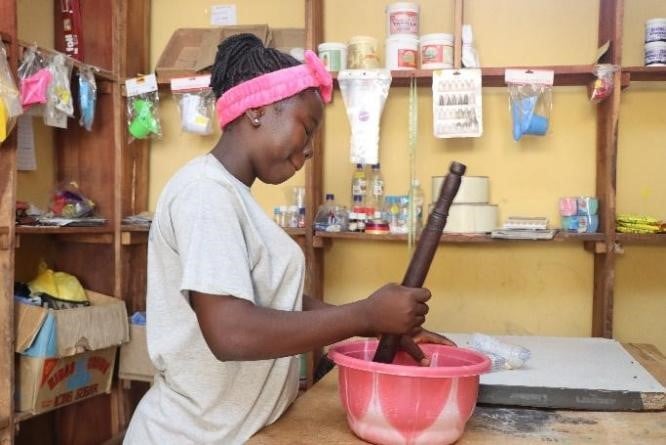
After her successful surgery, Faith participated in baking, catering and event management training and started her own business.
Improving maternal healthcare in Nigeria
It’s estimated that 150,000 women and girls are living with fistula in Nigeria, and left unchecked, around 13,000 more are likely to develop the condition every year. The real figure may be much higher, as women and girls with obstetric fistula often experience such stigma that they do not seek help.
As well as providing surgery and rehabilitation for women living with fistula, our project is:
- Supporting women and girls with fistula to start their own businesses
- Training health workers on the identification, prevention and treatment of fistula
- Renovating and equipping health facilities to improve maternal healthcare
We are also raising awareness of maternal health, to help prevent fistula and encourage those with the condition to seek support, by:
- Creating radio jingles and adverts about the symptoms of fistula and how to treat it
- Supporting health clubs in secondary schools to raise awareness of fistula
- Tackling stigma and discrimination by training community champions to know how to support women
- Advocating for women and girls with disabilities to be included into reproductive health plans and programmes
Read more about our project: Preventing fistula and improving maternal health in Nigeria
Meet the team: Working Together to #EndFistula
Meet the women raising awareness of fistula: Community champions tackle stigma
Will you help us raise awareness and end fistula for good? Share this article with your networks to show your support!

